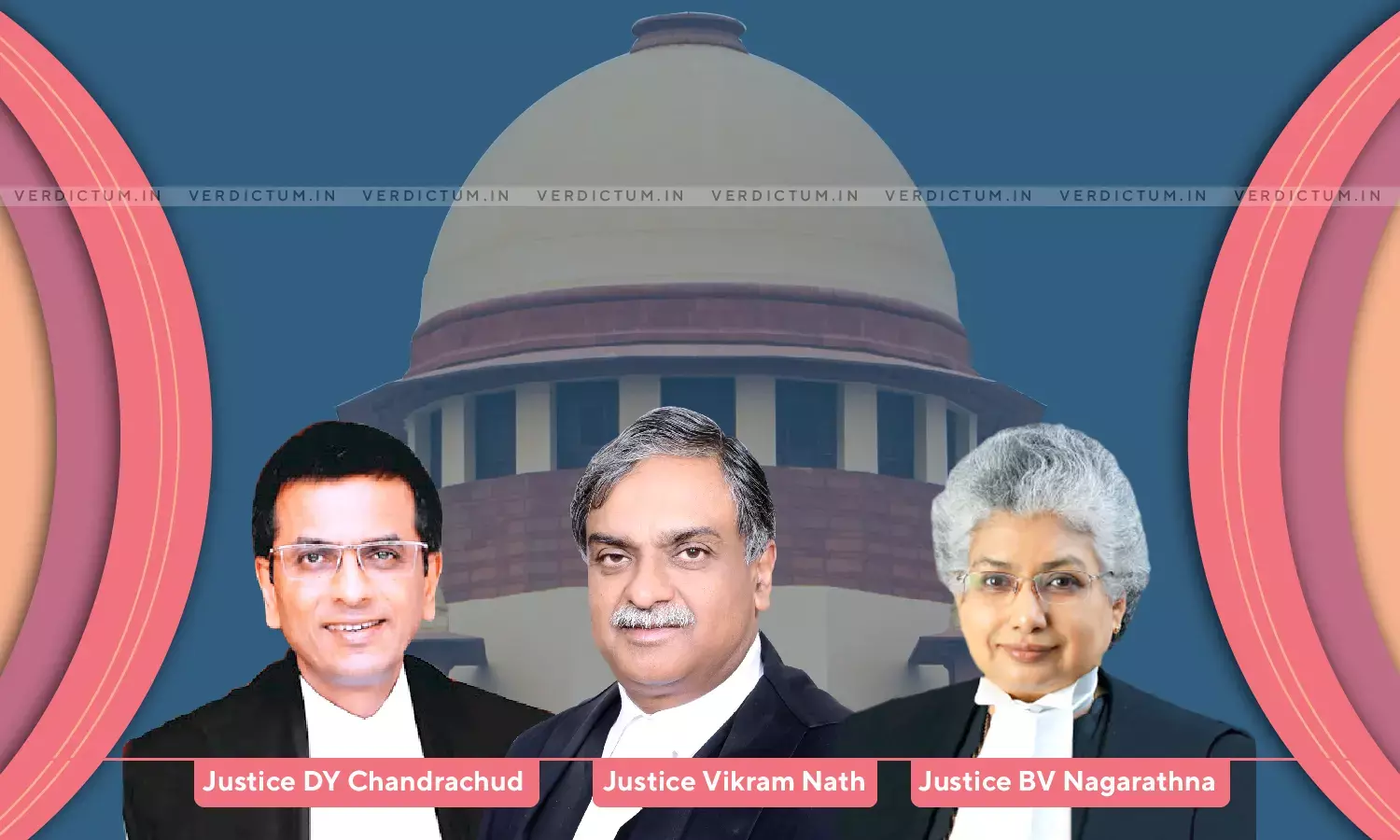Preliminary Enquiry By CBI Not Mandatory In Corruption Cases Where Information Discloses Commission Of Cognizable Offence: Supreme Court

A three-judge Bench of Justice DY Chandrachud, Justice Vikram Nath and Justice BV Nagarathna has held that a Preliminary Enquiry is not mandatory in cases that involve allegations of corruption and the information discloses commission of cognizable offence.
The Court further clarified that the scope of Preliminary Enquiry is not to check the veracity of the information received, but only to scrutinize whether cognizable offence has been committed.
An appeal was preferred against the judgment of the Telangana High Court which had allowed the Writ Petition of the Respondents under Article 226 of the Constitution of India and had quashed the FIR registered against the Respondents along with all further proceedings. The CBI approached the Supreme Court in appeal.
In this case, an FIR was registered by the Central Bureau of Investigation (CBI) against Respondent 1 (Wife) and Respondent 2 (Husband) for allegedly possessing disproportionate assets to her known source of income.
Respondent 1 was a Commissioner of Income Tax while Respondent 2, a Member of Legislative Assembly and a Minister in the State government in Andhra Pradesh. Respondent 2 was alleged to have abetted the offence.
The FIR was registered under Section 13(2) read with Section 13(1)(e) of the Prevention of Corruption Act 1988 and Section 109 of the Indian Penal Code 1860.
The High Court quashed the FIR for the following reasons–
1) The information about the Respondents' income could be ascertained from their 'known sources of income.'
2) A Preliminary Enquiry ought to have been conducted by CBI as per the CBI (Crime) Manual, 2005 to ascertain the veracity of the information obtained.
3) On the basis of the information received from 'known sources of income' the allegations against the Respondents in the FIR seemed unsustainable.
The Appellants contended before the Court that the CBI Manual did not make it mandatory to conduct a Preliminary Enquiry before the registration of FIR.
It was further argued that such an enquiry is conducted only when the information received is not sufficient to register a Regular Case. However, when the information available is adequate to register a Regular Case since it discloses the commission of a cognizable offence, no Preliminary Enquiry is necessary.
The 2 issues which were dealt with by the Court were –
1) Whether the CBI was mandatorily required to conduct a Preliminary Enquiry before the registration of an FIR in every case involving claims of alleged corruption against public servants; and
2) Whether the judgment of the High Court quashing the FIR was sustainable
- Regarding the first issue
The Apex Court, after considering the precedents and interpreting the provisions of the CBI Manual, held that a Preliminary Enquiry is not mandatory in all cases which involve allegations of corruption.
The Court further noted that a Preliminary Enquiry is required only if the information does not disclose the commission of a cognizable offence.
Further, the Bench opined, "Even when a Preliminary Enquiry is initiated, it has to stop as soon as the officer ascertains that enough material has been collected which discloses the commission of a cognizable offence."
"Since the institution of a Preliminary Enquiry in cases of corruption is not made mandatory before the registration of an FIR under the CrPC, PC Act or even the CBI Manual, for this Court to issue a direction to that affect will be tantamount to stepping into the legislative domain," the Court held.
The Court asserted, "Hence, we hold that in case the information received by the CBI, through a complaint or a "source information" under Chapter 8, discloses the commission of a cognizable offence, it can directly register a Regular Case instead of conducting a Preliminary Enquiry, where the officer is satisfied that the information discloses the commission of a cognizable offence."
- Regarding the 2nd issue
The Apex Court on analyzing the judgment passed by the High Court observed, "There is a fundamental error on the part of the Single Judge in conflating a document which is in the public realm with the truth of its contents."
"It becomes evident that the Single Judge of the Telangana High Court has acted completely beyond the settled parameters which govern the power to quash an FIR. The Single Judge has donned the role of a Chartered Accountant. The Single Judge has completely ignored that the Court was not at the stage of trial or considering an appeal against a verdict in a trial."
The Court held that the Single Judge conducted a mini-trial, overlooking binding principles which govern the plea for quashing an FIR.
The Bench opined that the documents which were relied upon by the Respondents cannot form a basis for quashing the FIR. "The value and weight to be ascribed to the documents is a matter of trial," the Court observed.
"Hence, at the stage of quashing of an FIR where the Court only has to ascertain whether the FIR prima facie makes out the commission of a cognizable offence, reliance on the documents produced by the respondents to quash the FIR would be contrary to fundamental principles of law," the Court held.
The Court held that FIR could not be quashed and ordered for the Appellant's investigation to continue.
In light of these observations, the Court set aside the impugned judgment of the High Court and allowed the appeal.

